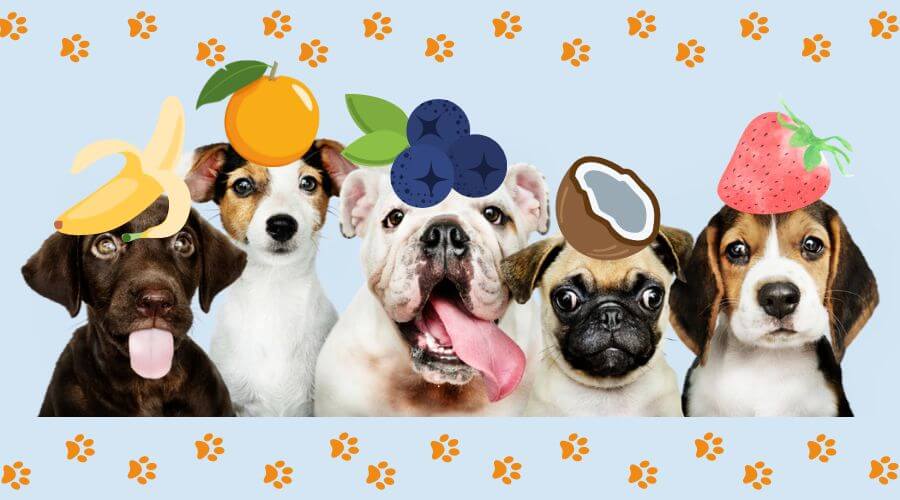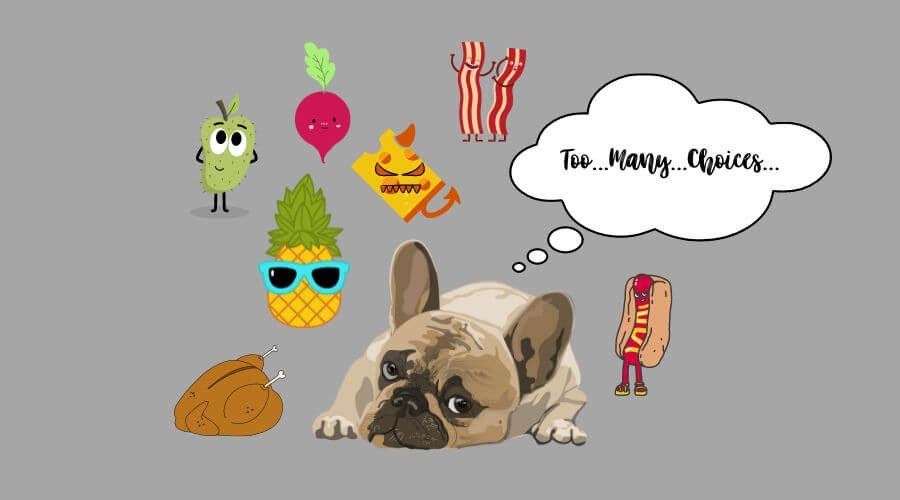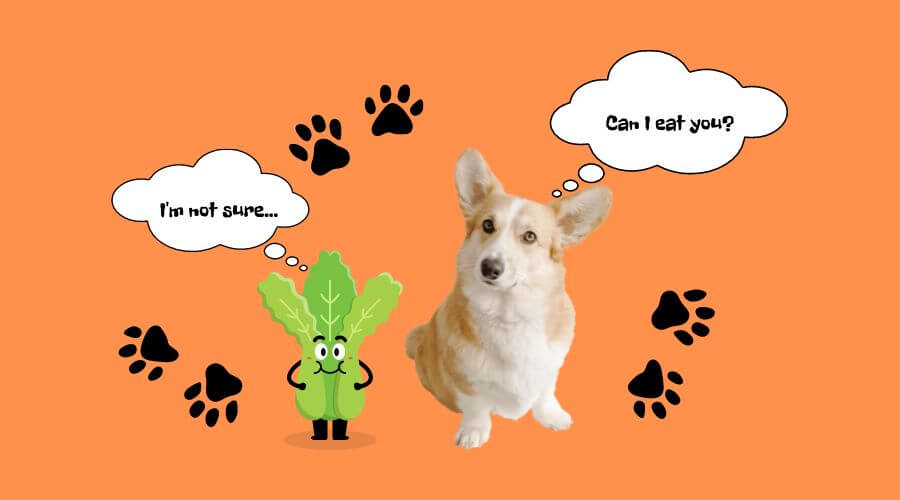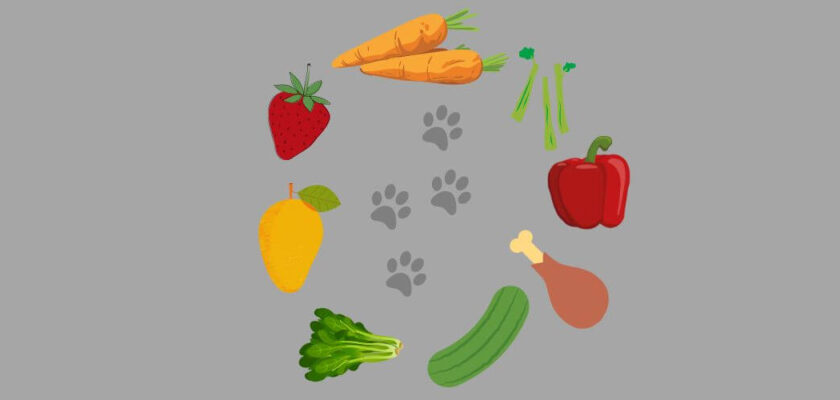Key Takeaways
- What can dogs eat? Dogs can eat a variety of human foods, but not all of them are good for dogs.🤔
- When it comes to vegetables, dogs can enjoy almost any variety, including cooked carrots, green beans, and spinach.
- Whole grains like brown rice and whole wheat pasta are also a great source of fiber for dogs.
- Fruits can be an occasional treat as well, but keep in mind that some fruits like grapes and raisins can cause kidney failure in dogs.
- Human snacks like popcorn and pretzels are fine for dogs in moderation.
- Some human foods that are healthy for people, may actually be toxic for dogs. These include onions, garlic, chocolate, coffee, and macadamia nuts.
- Instead of human food, stick to commercial dog treats and high-quality dog food that is specifically designed for canines.
What Can Dogs Eat? Introduction
Human food should not be the main component of your dog’s diet. Specialty dog foods are designed to meet the nutritional needs of a dog, and should be given as much as possible for optimal health. However, there are times when you may want to give your pup a special treat or supplement his regular food with human food.
There are some human foods that can be safely and healthily added to your dog’s diet on occasion, but there are also some human foods that should be avoided.
Here you will find a list of dos and don’ts to answer your question: what can dogs eat. Choose your pet’s favorites and keep your dog healthy!
What Can Dogs Eat? Vegetables🥬
There are some vegetables that dogs can eat, but keep in mind that not all veggies are safe for dogs. Moreover, some vegetables which are healthy for people, may not be good for dogs. Here is a list of veggies that you gan give your dog.
Celery
What can dogs eat when it comes to veggies? Celery, for example, is a good source of vitamins A, C and K. It can also help with your dog’s oral health, as it helps to clean and strengthen the gums. So if your dog has a stinky breath, give him some celery as a snack!
Carrots
Carrots are an excellent source of fiber and beta-carotene (an antioxidant, which helps to protect against cell damage). Same as celery, carrots can help to clean your pup’s teeth and freshen his breath.
Green Beans
They are loaded with fiber and are a healthy low-calorie snack. Just be sure to give your pup only cooked green beans, as uncooked ones can be difficult for them to digest. Green beans also contain vitamins B6, A and C, iron and calcium.
Broccoli
It contains a big amount of vitamin C, which helps to support the immune system and protect against cellular damage. Additionally, it contains a lot of fiber, which can help with digestion. However, broccoli can be fed to dogs only in moderation, as it can cause gas and digestive problems.
Spinach
These amazing leaves are great not only for people, but for dogs too. Spinach is full of antioxidants, vitamins A, C and K and other minerals like iron and calcium. It can help to keep the eyes healthy, support digestion and even improve your pup’s coat condition.
Beets
This vegetable is packed with vitamins, minerals and antioxidants, most importantly folate and potassium. It can help to boost your dog’s immune system, improve digestion and keep the heart healthy. Plus it contains a lot of fiber and has anti-inflammatory properties.
Sweet Potatoes
Treat your pup to a super healthy snack! A tasty sweet potato is full of fiber, carbohydrates and essential vitamins like A, C, B6 and E. Not only will it regulate blood sugar levels – boosting their immune system too – but by serving cooked vegetables you’ll make sure they’re easily digestible.
Pumpkin
Give your pup the treat of a lifetime with pumpkin! Not only does it taste great, but this superfood is loaded with vitamins and minerals that can help keep them healthy. Featuring powerful anti-inflammatory properties and promoting regularity, serve up some nutritious pumpkin to show your pup you care.
Cucumber
It is a great source of hydration and vitamins A, K and C. It helps to reduce inflammation and improve dental health. Plus it’s a low-calorie snack that your pup will love!
What Can Dogs Eat? Fruits🥭
Fruits offer lots of nutrients, and they can make an excellent snack for your pup. Here are some of the healthiest fruits that you can give to your dog.
Apples
Apples offer a plethora of nutritional benefits for your pup – they’re packed with dietary fiber, vitamin C, and antioxidants! Fiber aids in digestion while the vitamins & antioxidants help keep their immune system strong. Enjoying an apple will also leave them feeling fuller longer, so they can stay happy and healthy.
Bananas
This delectable treat packs a powerful nutritional punch! Packed with potassium, fiber, and an assortment of vitamins C, A B6 & B12; it’s the perfect way to keep your pup refreshed on those scorching summer days. Not only that – this beneficial snack can assist in digestion while keeping energy levels up for peak performance throughout the day.
Blueberries
These little berries are packed with antioxidants, vitamins C and K, as well as dietary fiber. They can help to improve your pup’s vision and keep his heart healthy. Plus they taste great!
Watermelon
This refreshing fruit is a great source of beta-carotene (an antioxidant), lycopene (an anti-inflammatory) and vitamins A, B6 and C. It is also a great source of hydration and electrolytes, which can help to keep your pup cool on those hot summer days.
Strawberries
Strawberries are a great source of antioxidants, dietary fiber and vitamin C. They can help to improve your pup’s digestion and keep his coat healthy. Plus they are delicious!
Peaches
Peaches are full of vitamins A, C and E, as well as potassium and dietary fiber. They can help to prevent constipation and keep your pup feeling full longer. Just be sure to remove the pit before giving it to him.
Mangoes
This sweet fruit is an excellent source of antioxidants, vitamin A, B6 and C. It can help to improve your pup’s vision and keep his skin healthy. Plus it tastes great!
Cantaloupe
Delight in the juicy, nutrition-packed sweetness of this summertime staple! Not only is it a refreshing snack on hot days, but it’s also surprisingly full of vitamin A & C and potassium. It can even help keep your digestive tract healthy while defending against bacteria with its immune system boosting properties – making sure you’re feeling great all season long.
Pineapple
This tropical fruit is packed with vitamins C and B6, as well as potassium and dietary fiber. It can help to reduce inflammation, improve digestion and even keep your pup’s coat looking shiny.
What can dogs eat? As you can see, a lot of fruits are available as a tasty snack!

What Can Dogs Eat? Meat, Fish, and Diary🍖
Some types of meat are great for your pup, but others can be dangerous. Here is a list of the ones you should stick to.
Chicken
Chicken is a lean source of protein, and it is packed with vitamins B6 and B12, as well as niacin. It can help to keep your pup’s coat healthy and improve his digestion. Just be sure to cook it thoroughly before feeding it to him. Skins and bones are a no-no.
Turkey
Same as chicken, turkey is a lean source of protein and vitamins for your dog. However, not all parts of the turkey are safe for your pup. The skin, fat, and bones can be dangerous if ingested, so make sure to remove those before you give any part of the turkey to your dog.
Editor’s Note
If you’re preparing a traditional Thanksgiving meal for your family, you can prepare a special meal for your pet by boiling or baking some skinless and boneless turkey without any added oils, seasonings, or other ingredients.
Lamb
Lamb is a great source of protein, vitamins B6 and B12, as well as zinc and iron. It can help to improve your pup’s energy levels and keep his coat looking healthy. Just make sure to remove any fat or bones before feeding it to him. Cooked meet is always safer than raw.
Beef
Beef steaks can be served as an occasional treat to your pup. However, you should always remove any fat and bones before feeding it to him, as too much fat in dog’s diet can lead to pancreatitis. Don’t give it to your pup on a daily basis, as it could lead to an unbalanced diet.
Fish
Fish is a powerhouse of beneficial nutrients for your pup! With omega-3 fatty acids, vitamins B6 and B12, as well as an array of other essential minerals – it’s no wonder why seafood has become increasingly popular among pups. Perfectly cooked and deboned salmon, trout, mackerel or herring can help keep your pet in optimum shape both physically and mentally by reducing inflammation while supporting brain development.
Eggs
Eggs are a powerhouse of nutrition for pups! They’re loaded with protein, vitamins A and B12, plus all the benefits that come from having vitamin D – shiny coat health, fortified immunity and sharp mental agility. Be sure to only give your pup boiled eggs though – raw ones can be dangerous!
What Can Dogs Eat? Grains🌾
Grains and carbs can provide your pup with a well-rounded diet, as long as you feed him the right ones. Here are some of the best grains and carbs for your pup:
Oats
Oats are full of dietary fiber, which can help to keep your pup’s digestive system healthy and regular. They are also packed with vitamins B1 and E, as well as magnesium and zinc. Oats can help to improve your pup’s coat health, boost his energy levels, and even reduce inflammation. Just make sure to only give him the plain variety without any added sugars or flavors.
Brown Rice
Brown rice is an excellent source of dietary fiber and essential vitamins and minerals. It can help to improve your pup’s digestion, boost his immune system, and keep energy levels up. Plus it’s a great source of complex carbohydrates, which can help to keep him feeling full for longer.
Quinoa
Quinoa is the perfect treat for your furry best friend! Packed with essential protein, vitamins and minerals as well as dietary fiber, it can help to improve coat health while providing an energy boost. Not only that but quinoa also boasts anti-inflammatory properties which could be beneficial in keeping a healthy digestive system – all without extra calories!
Whole Wheat
Whole wheat can help to improve your pup’s coat health, boost his energy levels, and even reduce inflammation. Plus it contains dietary fiber, which can help to keep his digestive system healthy. Just make sure to avoid breads and other processed wheat products, as they can contain added sugars and fats that could be bad for your pup.
What Can Dogs Eat? Human Snacks🍿
There are some human snacks which are safe for dogs to eat. However, it’s important to keep in mind that any human snacks you feed your pup should be given as occasional treats only.
Peanut Butter
Peanut butter is a great source of dietary fiber, protein, and healthy fats. Plus it contains vitamins B6, E and K. However, make sure to check the ingredients list as some brands contain sugar or artificial sweeteners which can be bad for your pup.
Cheese
Cheese is a great source of protein, calcium and healthy fats. Plus it contains vitamins A, B12 and D. It’s a great way to reward your pup for good behavior or as an occasional treat.
Popcorn
Popcorn (unsalted, without any seasonings) is a great source of dietary fiber and essential vitamins and minerals. Plus it’s low in calories, which makes it a good snack for pups who are trying to watch their weight. Just make sure not to give your pup too much as the high-starch content can cause stomach upset.

List of Don’ts🙅♀️
You asked what can dogs eat and now it’s time to state what dogs cannot eat. Some foods are not safe for dogs, and here is the list.
Grapes and Raisins
Grapes and raisins can cause kidney failure in some dogs. If your pup ingests grapes or raisins, contact your vet immediately. Even a small amount could be dangerous for your pup!
Onions and Garlic
Both of them contain thiosulfate that can destroy red blood cells in your dog’s body if ingested over time (this toxicity affects cats even more than it does dogs).
Avocados and Guacamole
These are types of food that should never be fed to Fido. They contain persin, an oil-soluble compound found throughout avocado trees but concentrated in their leaves/stems/seeds, rather than fleshy fruit. The compound is mildly toxic to many domestic animals, birds, and even fish.
Bones
Shopping for the perfect chew toy to keep your pup occupied can be confusing. While rawhide chews and bones provide an intriguing way to entertain, these treats come with potential risks that dog owners should be aware of. Rawhides can cause dangerous blockages in a canine’s digestive tract while cooked meat or poultry bones have been known to splinter and damage internal organs upon consumption. To ensure safety first when spoiling Fido!
Chocolate
It’s well known that chocolate is poisonous to dogs. It contains theobromine, which is what makes it toxic to dogs. Actually, it is potentially fatal when ingested by our four-legged friends. Symptoms of chocolate poisoning include vomiting, diarrhea. It’s very bad for the digestive system.
Alcohol
It is common to believe that dogs can drink alcohol, but in fact, this is dangerous. Alcohol poisoning will happen quickly, and it’s hard for the dog to recover from it. Alcohol depresses the central nervous system and damages key organs in both dogs and cats. Dogs may vomit, be weak, have dangerously low blood pressure and even die or fall into a coma.
Macadamia Nuts
Never feed macadamia nuts to dogs. They can cause hyperactivity, vomiting, and diarrhea. They are very inflammatory and can cause joint pains. Ouch!
Rhubarb
Rbubarb is poisonous to dogs and contains oxalic acid, a harmful substance that has a bad effect on Bella’s kidneys. So, keep the rhubarb out of reach!
The Pros and Cons of Feeding Your Dog Human Food
Feeding your pup human foods can be beneficial, but there are also some risks associated with it. The main benefit of offering Fido treats from your plate is that it’s a good way to show him love and reward good behavior. Plus, it’s an inexpensive way to provide your pup with healthy snacks.
On the other hand, there are some risks associated with feeding your pup human food. Many human foods are unhealthy for dogs, and even a small amount can cause serious health issues. Plus, giving Fido too many treats from the table can lead to weight gain and other health problems.

What Can Dogs Eat? Food for Dogs. Recap
So, what can dogs eat? This is a question that has troubled dog owners since forever because there aren’t any clear guidelines on what dogs can or cannot consume safely. Luckily, with these dos and don’ts, you’ll be able to give your pet everything it needs without worry about whether it’s good for them or not!
Frequently Asked Questions
Can Dogs Eat Bread?
The answer is yes, dogs can safely eat bread. Bread is not toxic to dogs, but it should be given in moderation as a treat and not as a regular part of their diet. In addition, be sure to check the ingredients list to ensure the bread does not contain any ingredients that are potentially harmful or toxic to your dog.
What Human Food Is Best for Dogs?
Many human foods are safe and even beneficial for dogs when given in moderation. Lean meats such as chicken, turkey, and beef are excellent sources of protein, while cooked eggs can provide additional vitamins and minerals. Fruits such as apples, blueberries, mangoes, and bananas make great treats too! Vegetables like carrots, sweet potatoes, broccoli, and spinach will provide additional vitamins and minerals to your pup’s diet.
What Should Dogs Eat Everyday?
Dogs should eat a balanced diet of high-quality protein, complex carbohydrates, healthy fats, vitamins, and minerals. Commercial dog food is specifically formulated to meet the nutrient needs of your pet. Ideally, this should be fed according to the instructions on the packaging.
What Can Dogs Drink?
In addition to water, dogs can safely drink unsweetened almond or coconut milk, diluted vegetable broth, and vegetable juice. It’s important to avoid sugary beverages like juices, soda, and sweet tea as these can lead to weight gain, diabetes, and other health issues.
Similar Posts:
- Can Dogs Eat Green Beans? Is a Green Bean Diet Good for Dogs?
- What Human Food Can Dogs Eat? 9 People Foods You Can Give Your Dog
- Can Dogs Eat Kiwi Safely? The Truth About Kiwis and Dogs
- What Vegetables Can Dogs Eat? Our List of Best Vegetables Dogs Can Eat
- Can Dogs Eat Pineapples? Your Pineapple Guide for Dogs
- Can Dogs Eat Bananas? Read Before Giving Your Puppy Banana Bread
- Can Dogs Eat Spinach? Risks and Benefits of Spinach for Dogs
- Can Dogs Eat Peas? Are They Safe for Dogs?

